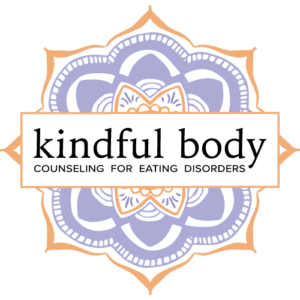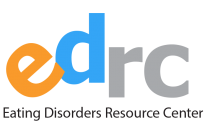Correlating eating disorders with body size/weight decreases diagnosis and treatment
There are so many myths about eating disorders thanks to media portrayals and those stereotypes are perpetuated due to a lack of understanding about eating disorders. This misinformation is dangerous because it often prevents people from getting the help they need. Eating disorder myths also contribute to stigma that keeps people hiding their eating disorder out of shame or the fear that they won’t be taken seriously because their body doesn’t look like what we’ve all been led to believe it should look like if they truly struggled with an eating disorder.
What is the biggest myth about eating disorders?
The biggest myth about eating disorders is that people with eating disorders are underweight. The truth is that less than 6% of people with eating disorders are medically diagnosed as “underweight.” Even physicians are not immune to believing this misconception. This leads to underdiagnosis of eating disorders in fat people.
There is also a belief that if someone has an eating disorder and is in a larger body they must have binge eating disorder, but the truth is that binge eating disorder (BED) afflicts people of all body sizes. Here are a few facts about BED:
- BED is more than three times more common than anorexia and bulimia combined.
- Research estimates that
- 28.4% of people with current BED are receiving treatment for their disorder
- 43.6% of people with BED at some point in their lives will receive treatment
- BED is also more common than breast cancer, HIV, and schizophrenia.
- Approximately 40% of those with binge eating disorder are male.
- Three out of ten individuals looking for weight loss treatments show signs of BED.
You can see why this myth is problematic. People with binge eating disorder aren’t getting the help that they need, and often they will try to recover by trying to lose weight, which just makes it worse.
Furthermore, people in larger bodies struggle with anorexia nervosa, bulimia nervosa, orthorexia, and other specified feeding and eating disorder (OSFED).
When people of normal and higher weights are diagnosed with anorexia nervosa, it is usually labeled “atypical” anorexia, which is further stigmatizing and there is nothing atypical about it. Anorexia is the only eating disorder with weight in its diagnosis criteria.
However, the symptoms of anorexia nervosa are still damaging, no matter what a patient weighs.This “atypical” label downplays the severity of the illness. Because someone with “atypical” anorexia has the same medical complications as someone in a lower weight body.
Furthermore, you can be malnourished in any size body if you have a restrictive eating disorder. Weight has nothing to do with the severity of an eating disorder.
Moreover, if we only provide help to the 6% of the people who are underweight, 94% of people go without the support and treatment they need.
Clients with eating disorders often seek validation that they are “sick enough” for treatment. If they receive a diagnosis or misdiagnosis based on weight, they might not get the help they really need. Just because someone is in a normal or larger size body doesn’t mean they aren’t suffering from the same negative effects of their eating disorder.
Although weight changes may be one of the most visible signs of eating disorders, it isn’t the only one that should raise concern, and weight changes don’t happen to everyone. Eating disorders should be treated equally regardless of weight. They are, after all, a complex mental illness first and foremost. Everyone should have equal access to recovery, no matter the size of their body.

About the author: Marcella Cox, LMFT, CEDS, Founder & Executive Director at Kindful Body
Marcella Cox is a Licensed Marriage and Family Therapist specializing in treating eating disorders in the San Francisco Bay Area and is the Founder and Executive Director of Kindful Body. Kindful Body is a collaboration of experienced eating disorder clinicians dedicated to providing compassionate, trauma-informed care to adults and older adolescents motivated to recover from disordered eating and heal body shame. We provide online therapy and nutrition counseling throughout California using the latest secure video counseling technology. Our mission at Kindful Body is to help clients heal the parts of them that keep them stuck in their disordered eating behaviors, so they can make the changes they desire to live fuller and happier lives.
If you or someone you know is struggling with an eating disorder, you can learn more about various care options here. You can also support the EDRC’s mission further by making a tax deductible donation.





